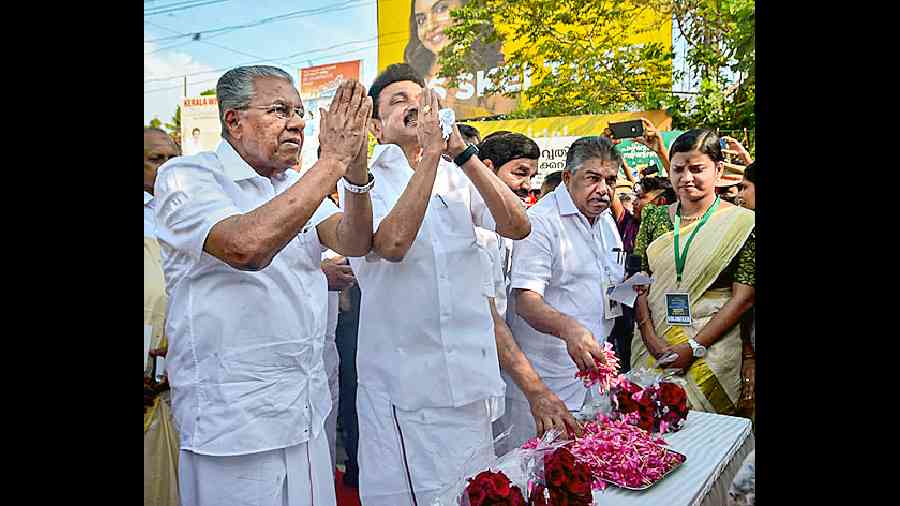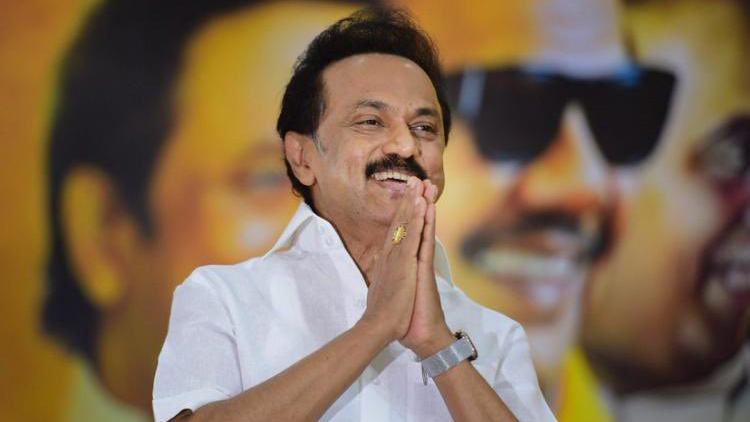On Saturday, Stalin made an impassioned plea to retrieve the “legacy of Periyar” which belonged to “the whole world”, particularly against the backdrop of the growing caste and communal divide in the country.
The DMK leader recalled that the basic ideas that defined the philosophy of “Periyarism” were “self-respect, rationalism, humanism, non-discrimination based on blood or gender, self-development, women’s empowerment, social justice, secular politics and scientific temper”.
“These are all simultaneously universal ideals and it is time we take them to the younger generation,” he underscored.
Stalin said that “GeNext” should be told how these universal ideals were in the vanguard of progressive, reformist struggles rooted in the ideals of equality and social justice, as during the Vaikom Satyagraha that had brought Tamil Nadu and Kerala together in the last century.
“The Vaikom Satyagraha is a beacon that should help us work together,” Stalin said, urging the two states to join hands and promote the legacy of leaders such as Periyar.
Thanking chief minister and CPM leader Vijayan for inviting Tamil Nadu to be part of the centenary celebrations, Stalin said Periyar’s wife Nagammai and his sister Kannammal had also joined the struggle.
Stalin recalled how Periyar was arrested twice during the struggle for defying prohibitory orders and making “revolutionary” speeches against the Brahmin orthodoxy, spending 141 days in Kerala during the agitation, including more than two months in two prisons. In 1925, at Mahatma Gandhi’s intervention, a settlement was reached with the erstwhile queen of Travancore under which it was agreed to throw open three roads around the temple to people of all castes.
Stalin said the Vaikom struggle had paved the way for temple entry for all castes later.
Speaking on the occasion, Vijayan emphasised the historic significance of the Vaikom Satyagraha and took pains to explain that the struggle drew the national limelight because Mahatma Gandhi took up the cause.
“Efforts are on to convert our nation into a theocracy by dismissing that (the secular ideals). There are moves to introduce Manusmriti which we need to realise will only help revive the social injustices, inequalities and oppression,” he cautioned.
“We are gathered here at a time when our freedom and constitutional rights are faced with massive challenges. We need to nourish social renaissance movements to defeat such tendencies,” Vijayan added.
The Kerala chief minister cited the example set bythe Vaikom Satyagraha to stress how people from across religions and castes had joined hands.
“Even members of those castes that would have benefited immensely from the existing caste system had participated in the Vaikom Satyagraha,” he said, alluding to several leaders such as Mannathu Padmanabhan, K.P. Kesava Menon and several others from the upper castes who took part in the movement.
“The centenary celebrations of the Vaikom Satyagraha are a reminder of the emerging challenges that are creating roadblocks to the progress of social renaissance in our society. It is also a reminder to focus on the larger cause and not minor differences, to stand up against inequality and injustice,” he noted.
Vijayan said the event that his state was celebrating along with neighbouring Tamil Nadu was in itself a great lesson in brotherhood and social justice.
Stalin and Vijayan paid tributes before a bust of Mahatma Gandhi and the memorial to Periyar at Vaikom. In memory of Periyar, Carnatic musician and social activist T.M. Krishna released a song rendered by him and penned by progressive writer Perumal Murugan.











